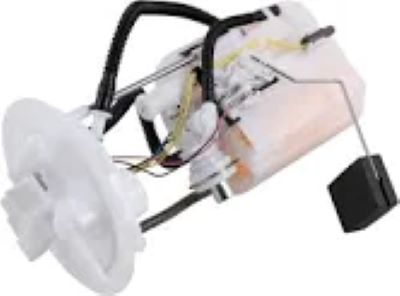The average fuel pump is expected to last anywhere between 100,000 and 150,000 miles depending on driving conditions. Properly taken care of, a fuel pump can last 15 years or more. Fuel pumps can go bad in less time if they are exposed to a poor fuel quality or low-fuel condition for too long. For example, automotive industry data indicates that fuel pumps running on low household loads are 30% more likely to do a poor job due to the need for cooling. Long-term use of persistently low levels put the fan bearings at risk for seizing, causing frictional wear and shortening life.
Fuel pump life is also influenced by driving conditions and habits. If a fuel pump is being asked to deliver more than 10% beyond what it was designed for its likely lifespan has now been compromised by approximately 20%. This would be the case with high-performance vehicles or those that are used in situations requiring heavy loading of their engines. Extensive idling also can be detrimental, as the pump is running without proper cooling. Maintain fuel levels above one-quarter of the tank and don't do a lot of aggressive driving, according to experts who seem overly obsessed with fuelling their recall.
A cleaner fuel path means less strain, and it is all thanks to regular maintenance that helps the process along every 30k-50K miles with a new Fuel Filter. Research demonstrates that filters are blocked, they boost the burden of the pump by over fifteen % consequently resulting in wear and therefore lowering efficiency. Repair specialists say that pump life can be extended by as much as 25% simply through regular filter changes, emphasizing the potential value of care and maintenance.

Fuel quality is another major factor, as dirty fuel with water or sediments can lead to damage of internal pump parts. Faster pump degradation with E10 or in the case of vehicles using ethanol-blended fuels, such as flexible fuel vehicles that can run on a blend of up to 85 percent ethanol and gasoline (E85) is suspected but no specific reported cases. Ethanol has hygroscopic properties which adds moisture into system causing other components in similar displacements method to fail due rapid combustion nature requirements.FLAGGED This problem causes rust and corrosion which reduces performance of pump that increase maintenance costs in long run. The long-game solution, as recommended by automotive experts is to run premium fuel of the highest quality available and when possible use ethanol-resistant pumps.
Ultimately, with proper use and maintenance practices a dependable Fuel Pump made of quality materials could have long prospective life resulting in optimized fuel delivery system which enhances engine performance. By using a good quality fuel of the right kind, keeping enough gas in your tank and taking steps to doing proper maintenance or diligence on time will make sure that you get the extant life outta them as they usually provide long-term vehicle reliability.
